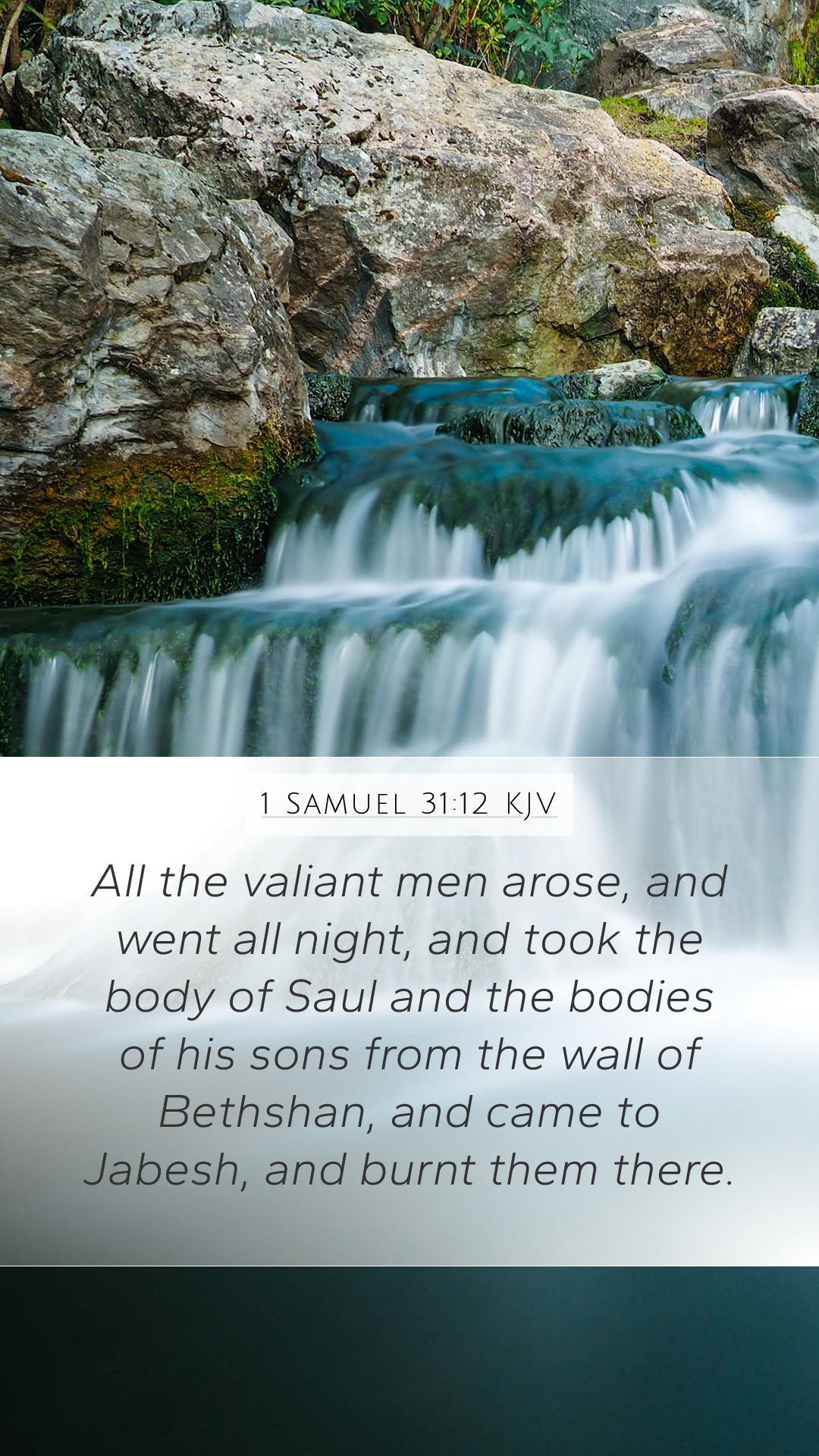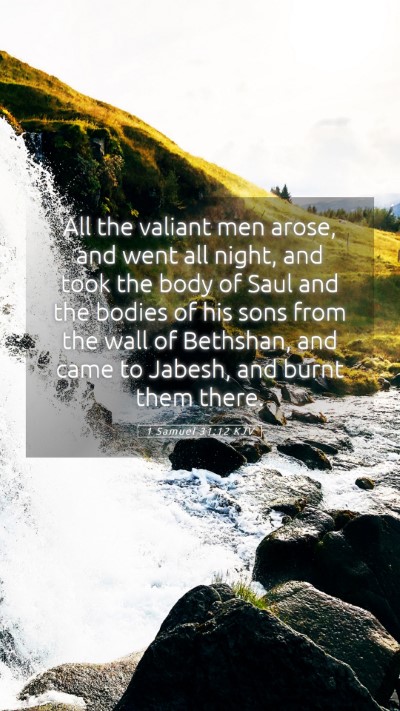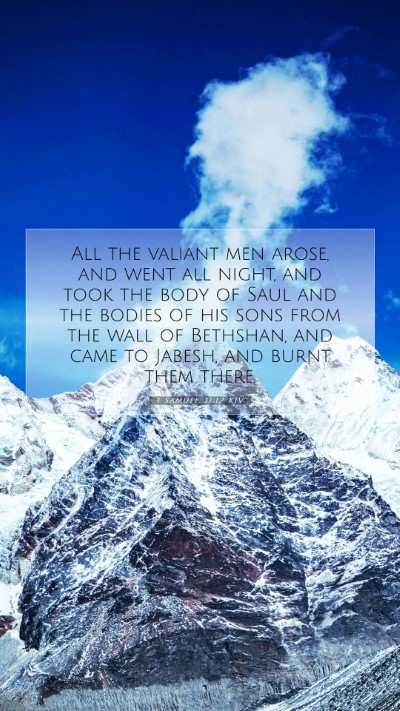Understanding 1 Samuel 31:12
1 Samuel 31:12 recounts the aftermath of the battle on Mount Gilboa, where King Saul and his sons perished. The verse highlights the actions of the valiant men of Jabesh-gilead, who bravely recovered the bodies of Saul and his sons to give them a proper burial. This act reflects their loyalty and respect for Saul, despite his failures as king.
Bible Verse Meanings
The verse encapsulates themes of honor, loyalty, and the importance of burial rites in ancient Israelite culture. Commentators emphasize the stark contrast between the tragic fate of the leaders and the devoted actions of their subjects in retrieving the lifeless bodies.
Bible Verse Interpretations
From a broader biblical perspective, this event underscores the transition of leadership in Israel from Saul to David. It conveys a sense of closure for the nation, highlighting the consequences of Saul's disobedience to God and the resultant divine judgment.
Bible Verse Commentary
- Matthew Henry: He notes that the treatment of Saul's body posthumously reflects the respect he held at one time as king, despite his failings.
- Albert Barnes: Emphasizes the courage of the men of Jabesh-gilead, illustrating that true loyalty persists even in the face of despair.
- Adam Clarke: Insights into the ritual significance of burial in Jewish tradition are discussed, asserting that the men's actions were pivotal in maintaining national dignity.
Scripture Analysis
This verse can be understood within the context of Israel's tumultuous history of kings. It serves as a significant turning point that leads to David's anointing as king, illustrating God's sovereignty over Israel's leadership.
Historical Context
Historically, this verse occurs at the end of the book of 1 Samuel, marking the end of Saul's reign and the beginning of a new era under David. The significance of the burial illustrates the cultural values surrounding leadership and respect for the deceased in ancient Israel.
Application of Bible Verse to Daily Life
The actions of the men of Jabesh-gilead remind us of the importance of respect, loyalty, and the rites surrounding death. In a modern context, this verse can inspire us to honor those who have passed and to exemplify loyalty to our leaders and communities, even during challenging times.
Related Bible Cross References
- 1 Samuel 31:2 - The death of Saul and his sons in battle
- 2 Samuel 1:11-12 - David's lament over Saul and Jonathan
- 2 Samuel 2:4 - David's anointing as king of Judah
Conclusion
In conclusion, 1 Samuel 31:12 serves as a powerful reminder of the values of loyalty and respect within the context of leadership and legacy. It demonstrates the intertwining narratives of tragedy and honor, ultimately guiding readers to reflect on the significance of actions taken in times of challenge.


